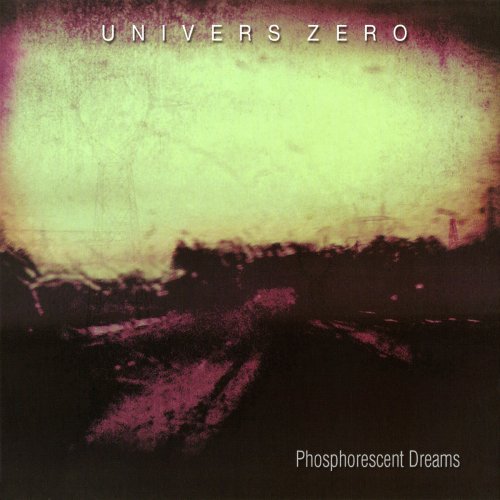Phil Madeira - Providence (2018)
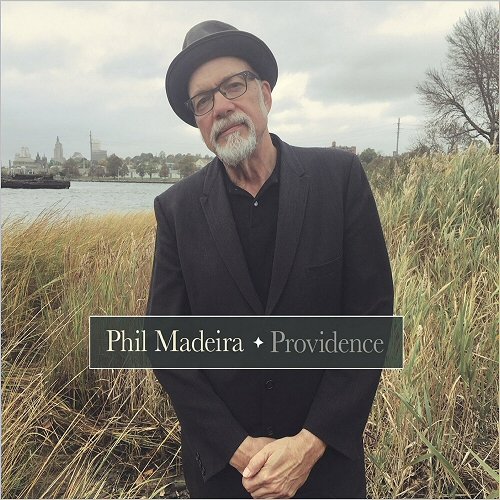
Artist: Phil Madeira
Title: Providence
Year Of Release: 2018
Label: Mercyland Records
Genre: Jazz, Vocal Jazz, Pop
Quality: FLAC (tracks) | MP3 320 kbps
Total Time: 41:41
Total Size: 251 MB | 102 MB
WebSite: Album Preview
Tracklist:Title: Providence
Year Of Release: 2018
Label: Mercyland Records
Genre: Jazz, Vocal Jazz, Pop
Quality: FLAC (tracks) | MP3 320 kbps
Total Time: 41:41
Total Size: 251 MB | 102 MB
WebSite: Album Preview
1. Wicked Job (6:26)
2. A Rhode Island Yankee On Jefferson Davis Court (3:18)
3. Dearest Companion (3:06)
4. Back In The Ocean State (4:12)
5. Barrington (4:03)
6. Crescent Park (4:29)
7. Rich Man's Town (5:38)
8. Wide Eyed Dream (2:36)
9. Native Son (4:39)
10. Gothenburg (3:09)
Phil Madeira is a well-known name in the Americana fan community for many things. He's a longtime sideman, most famously for the last decade as one of Emmylou Harris' Red Dirt Boys. He's a session player, with credits on enough albums that likely any fan of the genre has him on their shelf. He's a celebrated songwriter, with hits for a number of other artists, most notably his Grammy winning co-write of “From This Valley” with The Civil Wars. As a producer, he's released two highly reviewed gospel albums under the Mercyland moniker. But, despite releasing albums sporadically throughout his career, he's never really been known as a solo artist. That could be about to change on April 6 when his newest album, Providence, hits the shelves.
If, as early press seems to indicate, Providence is Madeira's solo breakout, it will be an interesting irony. Providence is the least broad, most intensely personal album of Madeira's career. While not a concept album, much of its 40 minute runtime is devoted to an exploration of his experiences in his Rhode Island home and the creative pull that led him to Nashville in the Eighties.
Despite regularly name-dropping places that will be unfamiliar to any of his fans outside Rhode Island, Phil Madeira's skill as a songwriter is painting them with a broad enough brush to allow the listener to connect their own experiences to his. The best example of this is “Crescent Park.” The story of an amusement park near his hometown that his mother declared forbidden territory due to unsafe rides and an unsavory crowd, Madeira gets off the best line of the album early by musing that “there's nothing like prohibition to make you want to get high.” In the song's second half, Madeira ends up working there himself to pay for college and discovering that the enticing sights and sounds of his youth aren't quite so desirable when it's just another day on the job.
“Back in the Ocean State” is another song chock full of Rhode Island references. But while most fans probably have no idea what Horton's is (despite Madeira's insistence they have the “best fried clams I ever had”), all can probably relate to the local institution's closure because “I guess they stepped on some toes and made a politician mad.” The song has an ambling Randy Newman feel that invites you in like an old friend.
Another persistent theme present in Providence is that of being an outsider. The move to Nashville, where he was too Yankee to be accepted as a local but found his Southern adaptations too foreign to be recognized back home, are documented in the album's standout track “A Rhode Island Yankee on Jefferson Davis Court.” The nod to the Mark Twain literary classic about a man out of time is an apt one. Madeira also shows he had plenty of experience as an outsider long before he hit Music City. Another standout is “Rich Man's Town.” In it, Madeira details growing up as the lower middle class “son of a preacher and a piano teacher” in a “white as snow” upper class suburb.
Throughout, Providence is a musical departure for Phil Madeira. For those expecting the folksy country blues of his previous albums, Providence is an endearingly jazzy surprise. For much of the album, Madeira plays piano, handing his usual guitar over to some very capable guest hands including fellow Red Dirt Boy Will Kimbrough and jazz guitar deity John Scofield.
The old saying goes “a change is as good as a rest.” For Phil Madeira, that appears to be the case as his foray into jazz has yielded the best album of his career.
If, as early press seems to indicate, Providence is Madeira's solo breakout, it will be an interesting irony. Providence is the least broad, most intensely personal album of Madeira's career. While not a concept album, much of its 40 minute runtime is devoted to an exploration of his experiences in his Rhode Island home and the creative pull that led him to Nashville in the Eighties.
Despite regularly name-dropping places that will be unfamiliar to any of his fans outside Rhode Island, Phil Madeira's skill as a songwriter is painting them with a broad enough brush to allow the listener to connect their own experiences to his. The best example of this is “Crescent Park.” The story of an amusement park near his hometown that his mother declared forbidden territory due to unsafe rides and an unsavory crowd, Madeira gets off the best line of the album early by musing that “there's nothing like prohibition to make you want to get high.” In the song's second half, Madeira ends up working there himself to pay for college and discovering that the enticing sights and sounds of his youth aren't quite so desirable when it's just another day on the job.
“Back in the Ocean State” is another song chock full of Rhode Island references. But while most fans probably have no idea what Horton's is (despite Madeira's insistence they have the “best fried clams I ever had”), all can probably relate to the local institution's closure because “I guess they stepped on some toes and made a politician mad.” The song has an ambling Randy Newman feel that invites you in like an old friend.
Another persistent theme present in Providence is that of being an outsider. The move to Nashville, where he was too Yankee to be accepted as a local but found his Southern adaptations too foreign to be recognized back home, are documented in the album's standout track “A Rhode Island Yankee on Jefferson Davis Court.” The nod to the Mark Twain literary classic about a man out of time is an apt one. Madeira also shows he had plenty of experience as an outsider long before he hit Music City. Another standout is “Rich Man's Town.” In it, Madeira details growing up as the lower middle class “son of a preacher and a piano teacher” in a “white as snow” upper class suburb.
Throughout, Providence is a musical departure for Phil Madeira. For those expecting the folksy country blues of his previous albums, Providence is an endearingly jazzy surprise. For much of the album, Madeira plays piano, handing his usual guitar over to some very capable guest hands including fellow Red Dirt Boy Will Kimbrough and jazz guitar deity John Scofield.
The old saying goes “a change is as good as a rest.” For Phil Madeira, that appears to be the case as his foray into jazz has yielded the best album of his career.
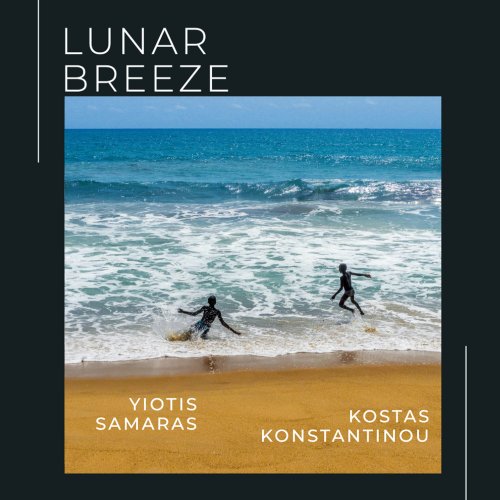
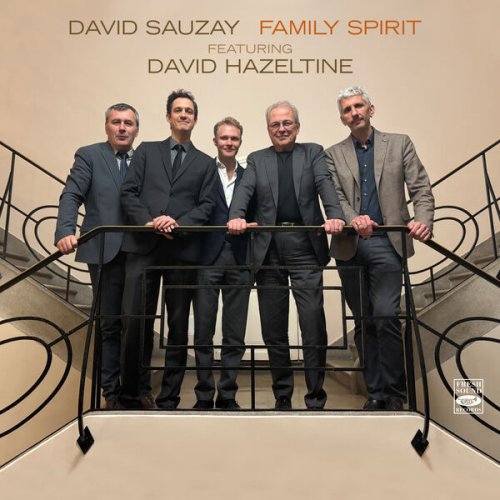
![Tom Oren - Dark Lights (2026) [Hi-Res] Tom Oren - Dark Lights (2026) [Hi-Res]](https://www.dibpic.com/uploads/posts/2026-02/1771427884_tdqtmzk78zgcb_600.jpg)
![Ali Shaheed Muhammad, Adrian Younge - Cross: Season 2 (Prime Video Original Series Soundtrack) (2026) [Hi-Res] Ali Shaheed Muhammad, Adrian Younge - Cross: Season 2 (Prime Video Original Series Soundtrack) (2026) [Hi-Res]](https://img.israbox.com/img/2026-02/18/c61izyjkl1wnuz91hzkfnam7x.jpg)
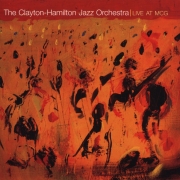
![Nicole McCabe - Color Theory (2026) [Hi-Res] Nicole McCabe - Color Theory (2026) [Hi-Res]](https://www.dibpic.com/uploads/posts/2026-02/1771327761_folder.jpg)
![Sababa 5 - Ça va Ça va (2026) [Hi-Res] Sababa 5 - Ça va Ça va (2026) [Hi-Res]](https://img.israbox.com/img/2026-02/19/fjh6s1r25i49g9yulzp8ivi4c.jpg)
![Seán Mac Erlaine - Music for Empty Ears (2018) [Hi-Res] Seán Mac Erlaine - Music for Empty Ears (2018) [Hi-Res]](https://img.israbox.com/img/2026-02/16/esx5zh4h5a4zqkspzowo3atfu.jpg)
